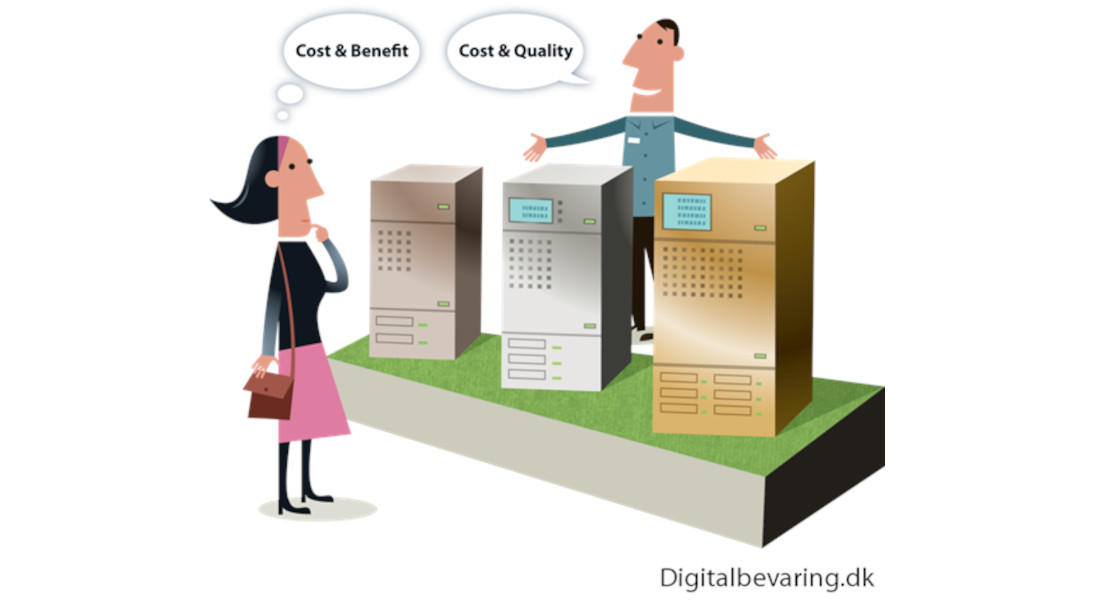- Also in this section
Events Calendar
Let’s talk about FRED: Experiences with the FRED Forensic Workstation

Following on from a recent DPC event on the topic of Digital Forensics, this members-only workshop provides an opportunity to deep dive into one specific aspect of the wider topic of digital forensics. Triggered by a thread on the DPC-DISCUSSION mailing list which called for a ‘show and tell’ session about how Members use the FRED (Forensic Recovery Evidence Device), these sessions focus on two key topics related to the FRED Forensic Workstation and its use to support digital preservation activities.
A FRED is a piece of hardware that can be used to support digital preservation activities - particularly the transfer of born digital content from storage media. Though it is more often in use for digital data recovery in criminal investigations, the need to create authentic copies of digital content received on a variety of different devices is also a key part of our digital preservation workflows and increasingly, a FRED is seen as an important element of a well-resourced digital preservation set-up.
Two main questions have arisen when talking about the FRED with Members:
-
Given the substantial price tag for purchase of a FRED and limited budgets, is this something that we do all need? What are the limitations of the FRED? Can we perform all the tasks using alternative tools and technologies?
-
Given many users of FRED are working in quite different contexts to us (for example in law enforcement) and that training and support available is aimed primarily at Forensic Examiners, eDiscovery Specialists and First Responders, how do we as the digital preservation practitioners make the most of the FRED and configure it to meet our own aims and objectives?
Session 1: Do we need a FRED and how do we get one? - 18th June 8:00am - 9:30am UTC (click for your local time)
A FRED Forensic Workstation is just one tool that we can use to carry out digital forensics activities on the digital content that we are preserving. However, they come at a high price and may be out of reach for many organizations working in digital preservation. This session will consider:
-
What is a FRED and how does it help us carry out our digital preservation activities?
-
Are there other ways we can achieve our aims without a FRED?
-
How have DPC Members successfully made the case for buying a FRED?
Participants will be invited to join in with the discussion and share their own thoughts and experiences.
Programme
-
Introduction and welcome
-
Amy Ibbotson, Collection Management Archivist (Digital), Queensland State Archives - What is a FRED and what is it used for?
-
Matthew Burgess, Lead Digital Archivist, State Library of New South Wales - What are the alternatives to using a FRED?
-
Stephen McConnachie, Head of Data and Digital Preservation, British Film Institute - How we made the case for a FRED
-
Caylin Smith, Head of Digital Preservation, Cambridge University Libraries - How we made the case for a FRED
-
Discussion and Q&A
-
Next steps
-
Close
Session 2: Making the most of the FRED - 18th June 3:00pm - 4:30pm UTC (click for your local time)
In this ‘show and tell’ session, a number of DPC Members will provide short case studies describing how they have configured and set up their FRED and the workflows they have established to process different types of digital material. There will also be time for Q&A and discussion.
Programme
-
Introduction and welcome
-
‘Show and Tell’ presentations
-
“First steps with FRED” - Julienne Pascoe, Digital Archivist, Library and Archives Canada
-
‘FRED & friends’ - Leontien Talboom, Technical Analyst, Cambridge University Libraries
-
‘Processing born-digital collections with FRED’ - Zachary Maiorana, Librarian/Archivist for Digital Programs, Harvard Radcliffe Institute Schlesinger Library
-
-
Discussion and Q&A
-
Next steps
-
Close
Recordings (DPC members, please log in to view)
All presentations will be recorded and made available to DPC Members and Supporters via this web page after the event (login to DPC website required).
DPC Inclusion & Diversity Policy
The DPC Community is guided by the values set out in our Strategic Plan and aims to be respectful, welcoming, inclusive and transparent. We encourage diversity in all its forms and are committed to being accessible to everyone who wishes to engage with the topic of digital preservation, whilst remaining technology and vendor neutral. We ask all those who are part of this community to be positive, accepting, and sensitive to the needs and feelings of others in alignment with our DPC Inclusion & Diversity Policy.
Event Location: Online
- Also in this section